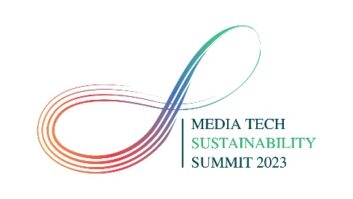Following our look at how the media tech industry dealt with a year of lockdown, TVBEurope wanted to find how the industry is feeling about the future.
We’re not out of the woods yet, countries are still in lockdown, travel restrictions remain in place, and vaccine roll-out might not be as fast as originally thought. But, there is lots for our industry to be positive about. We asked a number of key industry figures how they view the next 12 months and whether the industry will return to pre-pandemic workflows.
“A lot of what has been put in place to cope with the pandemic, will become established ways of working and doing business, including home and remote working, remote production workflows, increased streaming volumes and direct to consumer propositions,” says James Arnold, chief commercial officer at Red Bee Media.
“We expect there will probably be some flow back to previous ways of working, but only some, and we will most likely see hybrid versions of the old and the new, with, for example, physical events being simultaneously livestreamed, to increase audience sizes and monetisation.”
However, Ciaran Doran, Rohde & Schwarz’s director of marketing, broadcast and media, says he believes the industry shouldn’t return to pre-pandemic ways of working. “Our learning at the moment should be coined ‘2020 Hindsight’ and we should crystallise our learnings, the improvements that we should take forward,” he argues.
“On the vendor side there have been some excellent changes made during the last 12 months, such as improving how we demonstrate products and solutions via cloud technology and video conferencing – meaning we don’t all jump on a plane as fast as before. This not only improves efficiencies but saves the planet. But it’s crucially important that we return to getting to meet each other because creativity is at its peak when we engage with each other – and business flows from that human interaction too. Overall, we don’t see the future as a challenge, we see it as exciting. When the day to day rules get broken new opportunities arise and that’s when innovation takes a leap forward.”
The discussion around face-to-face meetings, and trade shows, is one picked up by other industry figures. “Industry events have already started to offer virtual alternatives as a ‘Plan B’ for exhibitors, maybe these hybrid models could be the way to go for the future; nevertheless, we have all realised how important in-person interactions are, so trade shows and other events will not go away entirely,” agrees Alexandra Maier, director, marketing and communications – Media Solutions, CGI.
“Overall, a lot of companies are thinking about changing their way of working together for the long run; hybrid solutions between office and working from home are likely to become the new normal, which can improve work-life-balance and increase sustainability.”
The issue of working from home is one that many vendors agree on. Graham Sharp, Broadcast Pix CEO says he believes many companies may never go back to their pre-pandemic ways of working. “Many of the workflow changes were already happening and coupled with the convenience and cost savings of remote working, we will never go fully back.
“Covid made us work differently, forced us to overcome many of our prior concerns, but as the use of video and streaming grows, let’s make the technology easier to use!”
“I think we learnt that change is possible if we really have to and used in the right way, technology is a facilitator of quick change more than we think,” adds Erik Ahlin, head of sales and marketing at Vidispine. “I think we also learnt that face-to-face meetings and interaction is still very important. It seems highly unlikely that even as travel restrictions and social distancing measure ease that any business, including the media industry, will return completely to pre-pandemic ways of working – not least because we were already trending towards many of the changes that have been made, those trends have just been accelerated.”
For Stuart Boorn, VP portfolio at MediaKind, the pandemic has helped the media industry streamline work processes, improve the environment, and refocus on how teams utilise their skills. “Virtual elements will continue to impact our life,” he says. “The acceleration of collaboration tools means that we can choose to do specific tasks physically – we just won’t need to do so in many instances. We have all become more adept at working within remote environments.
Yvonne Monterroso, director product management, at Dejero believes the pandemic has accelerated the adoption of new technologies and transformed future workflows into the workflows of today. For her, the key word for the next 12 months is enablement: “In the longer term, I don’t think we’re going to be talking about bit-rates or encoding formats or networks speeds or if it’s cloud or on-premise, we’re just going to be talking about enablement – talking about people and how their jobs can be simplified from a technical and content perspective, no matter where they are located.”







